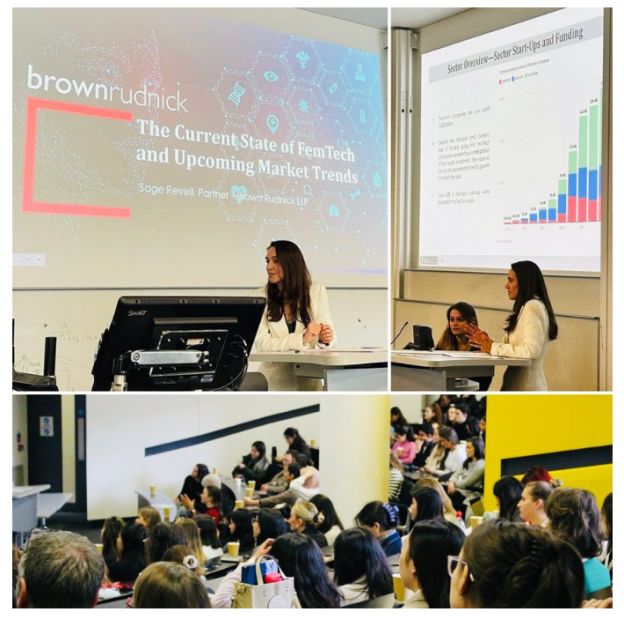
It was a pleasure to speak at Imperial College London's inaugural FemTech conference this weekend. I presented on the current state of the sector and gave insights into upcoming market trends.
Some highlights from the presentation:
- FemTech is innovation at the intersection of life sciences and technology to: (i) address health issues that solely or disproportionately affect women; and (ii) address general health conditions that affect women differently than men, such as cardiovascular or oncological conditions.
- Modern medicine was developed based on a foundation of male subjects; research has historically favoured male interests, leading to persistent gender disparities in diagnostics, treatment and care.
- Clinical studies have long been conducted exclusively with male participants, leading to women receiving incorrect prescriptions or dosages.
- To highlight the disparity: it wasn't until 1993 that the National Institutes of Health mandated that clinical research studies receiving federal funding must include women and minorities.
- The World Economic Forumidentified the investment in improving women's health as vital to creating a "healthier, more equitable world for all" and estimated that a $300 million investment in research for better female health could improve both direct health care economics and indirect productivity costs and could yield a $13 billion economic return.
- Approximately 40%of FemTech companies are only pre-seed and seed-stage business.
- The funding gap is due to historical lack of awareness about women's health issues and corresponding lack of proactive solutions for these issues. For example, menstrual products were not allowed to be advertised on American television until 1972, and the U.S. — and other countries — have a long history of failing to embrace menstruation as a reality of life.
- Compounding the issue is that entrepreneurship and investment continue to be largely male-dominated fields, which emphasizes the challenge of engaging men on female health topics.
- On Nov. 13, 2023, the White House announced the launch of its first-ever initiative focused on women's health research, to be led by first lady Jill Biden.
- On Feb. 21, Biden announced the first major deliverable: $100 million in federal funding to be used to invest early in "life-changing" work being done by women's health researchers and startup companies that cannot get private support.
Some key takeaways:
- If we have good clinical data, then that forms the basis for innovation in this sector.
- Educationis key — the more we talk about this, the more we educate, the better we will be at achieving the ultimate goal.
- The next generation will help to open the discussion and not accept things as they are, but be the driving force to facilitate change.
The content of this article is intended to provide a general guide to the subject matter. Specialist advice should be sought about your specific circumstances.
